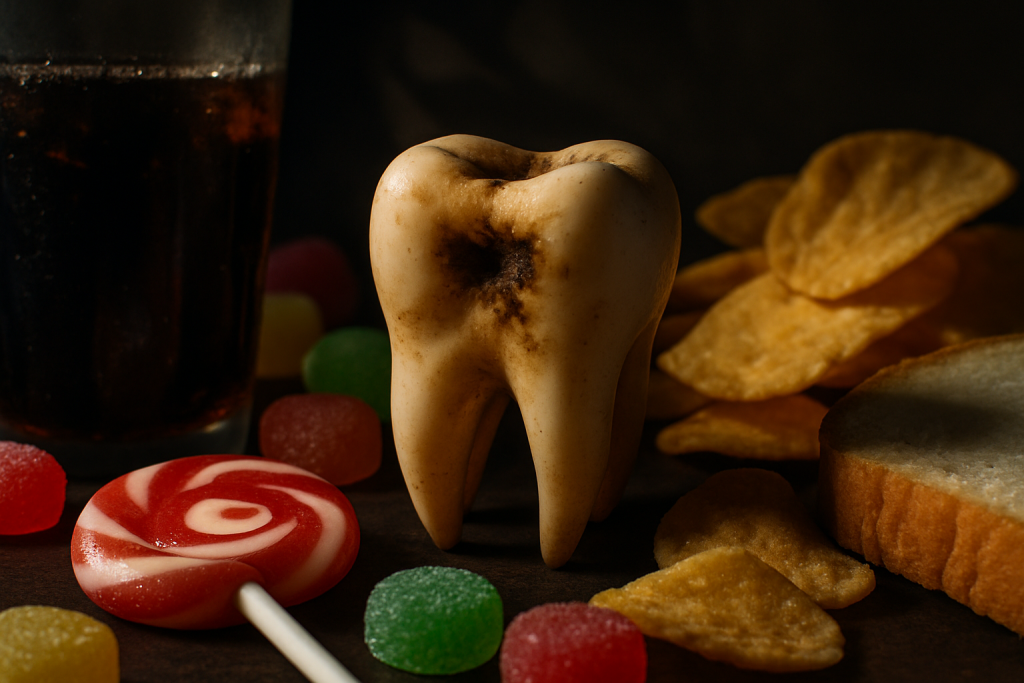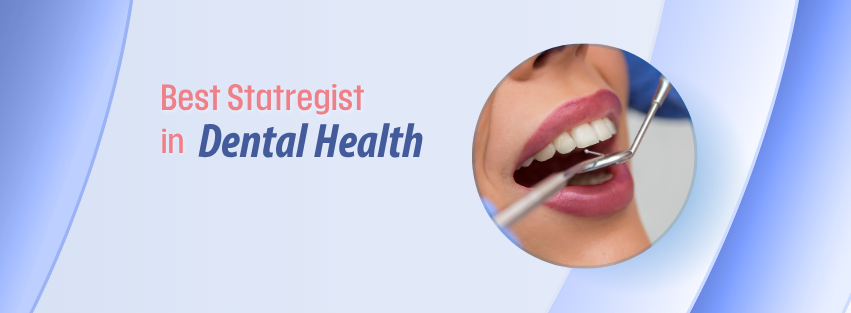
Can my rotten teeth Be Saved: Understanding dental treatment options.
Rotten teeth, often caused by decay or gum disease, can lead to serious health issues if left untreated. However, various treatments can help save your teeth and restore their health. Here’s a look at some options to consider:
- Fillings: If decay is caught early enough, your dentist can remove the rotten part of the tooth and fill it with a material like amalgam or composite resin. This can prevent the decay from spreading further.
- Crowns: For teeth that are severely damaged, a crown can cover the whole tooth, offering support and restoring its shape. Crowns can be made from different materials, including gold, porcelain, or ceramic, and are very durable.
- Root Canals: If decay has reached the tooth’s pulp, a root canal may be necessary. During this procedure, the dentist removes the infected pulp, cleans the inside of the tooth, and seals it. A crown is often placed afterward to protect the tooth.
- Extractions: In some cases, saving a tooth may not be possible. If a tooth is too far gone, your dentist may recommend extracting it. While this may sound scary, removing the tooth can prevent further issues and lead to a healthier mouth.
- Dental Implants: If you lose a tooth, consider a dental implant. This is a replacement tooth root that is surgically placed in your jawbone. Once healed, a crown can be added to fill in the gap, providing a permanent solution.
It’s crucial to visit your dentist regularly for check-ups. These visits can help catch problems early before they lead to more significant issues. If you’re already experiencing pain or discomfort, don’t hesitate to make an appointment. The sooner you address the problems, the more treatment options you will have.
Aside from these treatments, maintaining good oral hygiene is essential for all tooth types. Brushing your teeth twice a day, flossing daily, and using mouthwash can help prevent future decay and maintain your oral health.
Once your dental health is restored, you may wonder what you can do to prevent future problems. Here are some tips:
- Limit Sugary Foods: Sugar feeds bacteria in your mouth, leading to decay. Choose healthier snacks like fruits, vegetables, and nuts.
- Stay Hydrated: Drinking water helps rinse away food particles and keeps your mouth hydrated. It’s especially important if you consume acidic or sugary foods.
- Quit Smoking: Smoking can contribute to gum disease and other oral health problems. If you smoke, seek help to quit.
- Use Fluoride: Fluoride helps to strengthen teeth and prevent decay. Make sure your toothpaste contains fluoride and consider using a fluoride mouthwash.
Taking charge of your dental health can significantly impact your overall health and well-being. If your rotten teeth are causing you distress or impacting your daily life, reach out to your dentist. Exploring your treatment options allows you to address the problem head-on and make informed choices about your oral health.
Don’t let rotten teeth discourage you. With the right care and treatment, saving your teeth is possible, and the journey to a brighter, healthier smile starts today. With regular dentist visits and proper care at home, you can keep your teeth healthy and prevent future issues.
Your smile plays a huge role in your self-esteem and daily interactions. Addressing dental decay not only helps restore your smile but also positively impacts your health. Remember, your teeth are worth saving, so take the necessary steps to protect your oral health.
The impact of oral health on overall Well-being:
Oral health plays a crucial role in your overall well-being, affecting not only your mouth but also your body and mind. Maintaining healthy teeth and gums can impact various aspects of your life, from nutrition to self-esteem. Many people underestimate the importance of oral care and the potential risks associated with neglecting it.
First, let’s explore how oral health directly influences your physical health. Poor dental hygiene can lead to gum disease, which has been linked to several serious health conditions:
- Heart Disease: Bacteria from gum infections can enter your bloodstream, potentially leading to cardiovascular issues.
- Diabetes: Those with diabetes are more susceptible to gum disease, creating a harmful cycle between the two conditions.
- Respiratory Problems: Inhaling bacteria from the mouth can result in respiratory infections and complications.
- Pregnancy Complications: Pregnant women with poor oral health may face issues such as premature birth.
Taking care of your teeth and gums is essential for the prevention of these health challenges. Regular brushing and flossing, along with routine dental check-ups, are vital components of good oral hygiene. By keeping your mouth clean, you minimize the risk of bacteria spreading to other areas of your body.
So, how can you ensure your oral health positively contributes to your overall well-being? Here are some actionable steps you can take:
- Establish a Brushing Routine: Brush twice a day with fluoride toothpaste to remove plaque and prevent cavities.
- Floss Daily: Flossing cleans spaces between teeth that a toothbrush can’t reach.
- Visit Your Dentist Regularly: Aim for check-ups and cleanings at least twice a year to detect any issues early.
- Maintain a Healthy Diet: Limit sugary snacks and beverages while incorporating more fruits and vegetables for better oral health.
- Stay Hydrated: Drinking water helps wash away food particles and bacteria.
To recap, your oral health should never be overlooked, as it is interconnected with many facets of your life. By taking proactive steps to maintain your teeth and gums, you can enhance your physical health, improve your confidence, and lead a more fulfilling life. Remember, a healthy smile is a gateway to better overall well-being, so make oral hygiene a priority in your daily routine.
Preventing tooth decay: Essential tips for healthy teeth
Tooth decay is a common dental issue that affects people of all ages. Fortunately, there are effective strategies you can adopt to keep your teeth healthy and strong. Prevention is always better than cure, and with some simple habits, you can maintain a beautiful smile.
Maintain good oral hygiene:
Keeping your mouth clean and free from food particles is essential in preventing tooth decay. Here are some key practices:

- Brush Twice a Day: Make it a habit to brush your teeth for at least two minutes, twice daily. Use fluoride toothpaste to help strengthen tooth enamel.
- floss Daily: Flossing removes food particles and plaque from between the teeth where a toothbrush can’t reach. Don’t skip this step, as it’s vital for complete oral hygiene.
- Use Mouthwash: An antibacterial mouthwash can reduce plaque and bacteria, offering an extra layer of protection against cavities.
Watch your diet:

The food you eat plays a significant role in dental health. Certain foods can promote tooth decay, while others can help protect your teeth. Here are some tips for a tooth-friendly diet:
- Limit Sugary Snacks: Foods high in sugar can lead to tooth decay. Try to avoid candies, sodas, and other sugary treats.
- Eat Crunchy Fruits and Vegetables: Foods like apples, carrots, and celery can help clean your teeth and stimulate saliva production, which neutralizes acids that cause decay.
- Drink Plenty of Water: Staying hydrated helps wash away food particles and keep saliva levels balanced, which is important for oral health.
The connection between diet and dental health:
Your diet plays a crucial role in your dental health. The foods and drinks you consume not only fuel your body but also affect your teeth and gums. Eating the right nutrients can help you maintain healthy teeth, whereas poor dietary choices can lead to dental issues such as cavities, gum disease, and even tooth loss.
Understanding the connection between diet and dental health empowers you to make informed choices for your smile.
To start, let’s explore some essential nutrients that are beneficial for your dental health:
- Calcium: This mineral is vital for strong teeth and bones. Consuming calcium-rich foods such as dairy products, leafy greens, and fortified plant-based milks can help strengthen your enamel.
- Vitamin D: This vitamin works hand-in-hand with calcium to promote oral health. It helps your body absorb calcium effectively. You can find vitamin D in fatty fish, egg yolks, and by getting sunlight.
- Vitamin C: Vital for gum health, vitamin C helps reduce inflammation and supports the healing of gum tissue. Foods like oranges, strawberries, and bell peppers are excellent sources.
- Phosphorus: Found in foods such as meat, fish, nuts, and beans, phosphorus aids in rebuilding tooth enamel and works with calcium to protect your teeth.
- Antioxidants: These nutrients, found in fruits and vegetables, help protect your gums from damage. Berries, spinach, and nuts are great additions to your diet.
It’s also crucial to maintain a balanced diet. Following a diet consistent with the food pyramid can benefit your teeth greatly. Here are some tips for creating a balanced diet that promotes dental health:
- Include a variety of fruits and vegetables. They provide vitamins and minerals that support both your overall health and your oral health.
- Opt for whole grains instead of refined grains. Whole grains contain more nutrients and can help you maintain a healthy weight, which is beneficial for gum health.
- Incorporate lean proteins such as chicken, turkey, and beans. These foods help maintain muscle mass and provide the body with amino acids essential for tissue repair, including in the mouth.
- Stay hydrated with water. Drinking plenty of water helps wash away food particles and bacteria, reducing the risk of tooth decay.
Your diet significantly influences your dental health. By focusing on nourishing your body with nutrient-rich foods and steering clear of harmful ones, you can greatly enhance your smile’s health. Take charge of your dental care today, and remember that every meal is an opportunity to support your teeth and gums.
Conclusions:
Taking care of your teeth is vital for not just your smile, but also your overall health. If you’re facing the challenge of rotten teeth, it’s important to understand the dental treatment options available, from fillings to crowns and even extractions if necessary. Each choice has its own set of benefits and considerations, helping to restore your mouth to a healthier state.
Your oral health directly affects your well-being. Conditions affecting your teeth and gums can lead to serious issues, including heart disease and diabetes, underscoring the importance of healthy habits.
Preventing tooth decay is essential, and simple actions like brushing, flossing, and choosing tooth-friendly foods can make a significant difference. For instance, sugary snacks and drinks can lead to cavities, so consider incorporating more fruits and vegetables into your diet.
